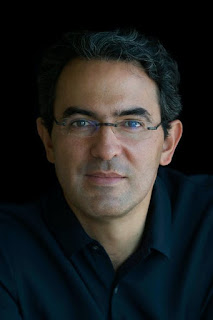Francine Prose, What to Read and Why
 |
| Francine Prose |
Privacy and solitude may not be objectives for everyone who reads, but for most of us solitude helps us focus on our reading. Sometimes if we cannot be alone, as in a crowded waiting room or aboard a crowded train, reading can help us feel alone. Prose remembers as a child that reading for her, even though she lived in a happy home, "was a way of creating a bubble," a buffer zone between herself and adults.
Reading is both a way of turning off the world and turning on a different world, usually filled with people very different from those people we are perhaps attempting to hide away from when we sit down to read. A book, Prose writes, is "a kind of refuge."
It is no coincidence that so many readers are introverts. Extroverts seek out other people and often have little time to read. Introverts like people well enough, but frequently they yearn to escape actual people to spend time alone yet in the company of the other people they find in the pages of books. Reading about the fictional people or historical people they encounter in books may in some way help them cope with the real people in their lives. At any rate, it gives them a welcome break.
There may be something of a paradox here, this refuge from people found by reading about other people. Prose writes that "reading is not exactly like being alone. We are alone with the book we are reading, but we are also in the more ethereal company of the author and the characters that author has created."
Reading may seem anti-social, yet it really isn't, at least not for most people. Reading places us in the minds and the lives of those very different from ourselves. Reading helps us understand them. It helps us feel what they feel, experience what they experience. Reading alone may, in fact, be one of the best things a person can do to connect with others.












